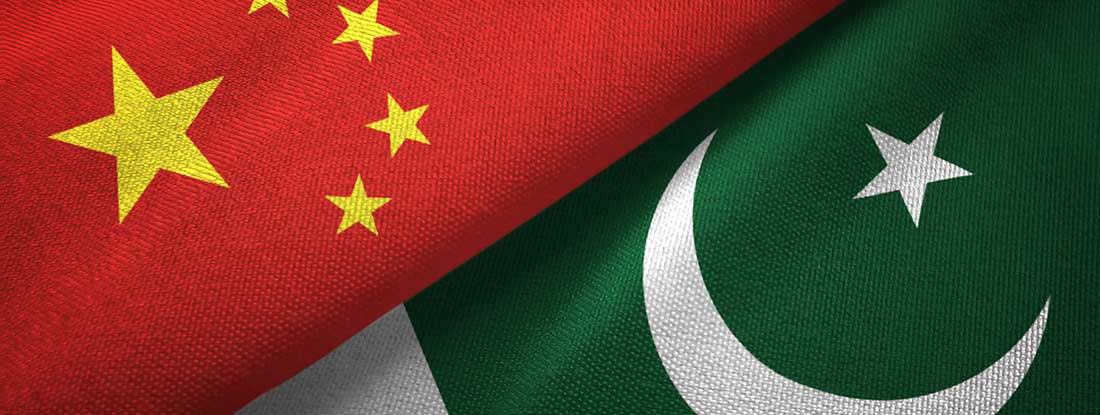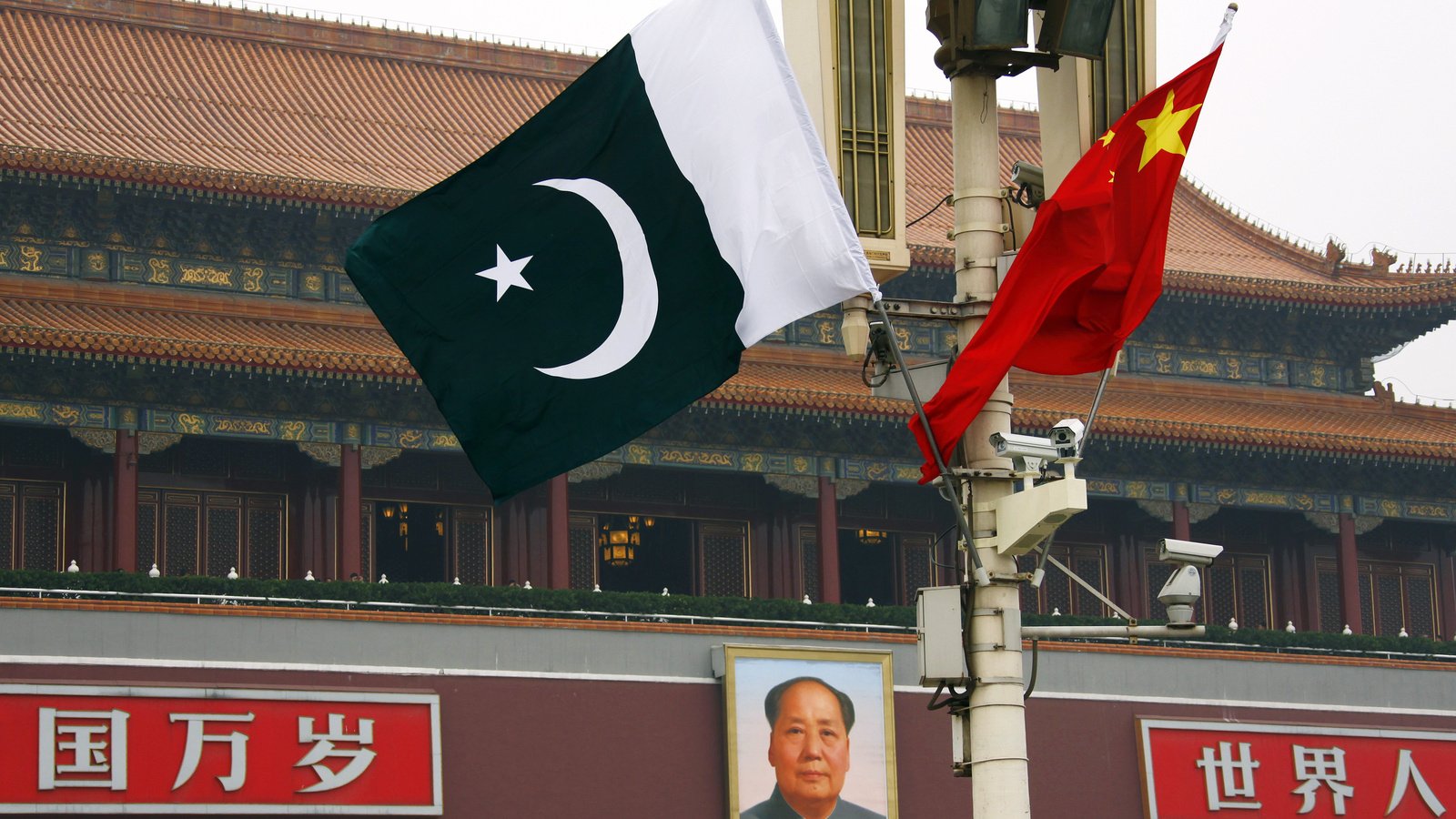Pakistan and China share a historic and multi-faceted relationship, marked by mutual trust, cooperation, and strategic alignment. This bond, often described as "higher than the Himalayas, deeper than the oceans, and sweeter than honey," has evolved over the decades, encompassing diplomacy, defense, economy, and cultural exchanges. The friendship between the two nations is a cornerstone of regional stability, with both countries collaborating in numerous fields to enhance their bilateral ties.
Despite changes in global geopolitics, Pakistan and China have continued to strengthen their relationship. The bilateral partnership is not only based on mutual benefits but also on shared aspirations for peace, progress, and prosperity. This article delves into the different dimensions of their relationship and its future potential.

Historical Background
Early Diplomatic Ties
Pakistan was one of the first countries to recognize the People’s Republic of China in 1950, shortly after the communist revolution in China. This early recognition laid the foundation for a strong diplomatic relationship. In 1951, both nations officially established diplomatic relations, marking the beginning of a long-lasting friendship.
Over the years, Pakistan and China have supported each other on key international issues. The 1963 border agreement between China and Pakistan was a landmark event that strengthened their geopolitical alliance. This agreement resolved boundary disputes and demonstrated the deep trust between the two nations.
Strengthening Relations Over Decades
The Pakistan-China relationship has strengthened over the decades, with each period witnessing significant advancements.
-
1970s: Pakistan played a pivotal role in facilitating US-China rapprochement, which led to President Richard Nixon's historic visit to Beijing in 1972. This move positioned Pakistan as a key intermediary in global diplomacy.
-
1990s: Defense and military cooperation between Pakistan and China deepened, with joint projects such as the development of JF-17 Thunder fighter jets.
-
2000s-Present: The economic relationship took center stage, particularly with the launch of the China-Pakistan Economic Corridor (CPEC) in 2015, which marked a new era of economic cooperation and development.
Key Aspects of Pakistan-China Relations
1. Economic Cooperation
Pakistan and China enjoy strong economic cooperation, with China being Pakistan’s largest trade partner and a key investor in its infrastructure and energy sectors. The China-Pakistan Economic Corridor (CPEC), a flagship project under China’s Belt and Road Initiative (BRI), has significantly enhanced economic ties by developing roads, railways, ports, and energy projects across Pakistan. This multi-billion-dollar initiative has boosted industrial growth, job creation, and regional connectivity. Additionally, both countries have signed free trade agreements to facilitate bilateral trade. China's investments in Pakistan’s special economic zones (SEZs) and technology sectors further strengthen economic collaboration, ensuring long-term economic stability and development.
China-Pakistan Economic Corridor (CPEC)
CPEC, launched in 2015, is a cornerstone of the China-Pakistan economic relationship. It is a flagship project of China’s Belt and Road Initiative (BRI) and involves over $62 billion in investments. The corridor includes a network of roads, railways, and energy projects that are expected to transform Pakistan’s economic landscape.
One of the key aspects of CPEC is the development of Gwadar Port, which has the potential to become a major trade and transit hub in South Asia. The port’s strategic location provides China with access to the Arabian Sea, facilitating trade with the Middle East, Africa, and beyond.
Bilateral Trade and Investment
Bilateral trade between Pakistan and China has witnessed substantial growth over the years.
|
Year |
Trade Volume (USD Billion) |
|---|---|
|
2010 |
8 |
|
2015 |
16 |
|
2020 |
19.5 |
|
2023 |
27 |
China exports machinery, electronics, and chemicals to Pakistan, while Pakistan primarily exports textiles, agricultural products, and minerals to China. Despite the strong trade partnership, the trade balance remains heavily in China’s favor, a challenge that Pakistan aims to address by boosting its exports.
2. Defense and Strategic Ties
Pakistan and China share deep-rooted defense and strategic ties, marked by robust military cooperation, joint defense production, and intelligence sharing. Their partnership, often described as "ironclad," is driven by mutual security interests, particularly in countering regional threats and maintaining strategic balance in South Asia. China is Pakistan’s largest defense supplier, providing advanced weaponry, aircraft, and naval assets, including the JF-17 Thunder fighter jet, jointly developed by both nations. The two countries also conduct regular joint military exercises to enhance combat readiness and interoperability. Additionally, the China-Pakistan Economic Corridor (CPEC) has strategic implications, strengthening their alliance and ensuring long-term regional stability.
Military Cooperation
China has been a consistent supplier of military equipment to Pakistan, helping it strengthen its defense capabilities. The two countries conduct regular joint military exercises and collaborate on military training programs. China has also assisted Pakistan in modernizing its armed forces by providing advanced weaponry and technological support.
Defense Agreements
One of the most notable aspects of the defense partnership is the joint production of the JF-17 Thunder fighter jets, which serve as a backbone of the Pakistan Air Force. Additionally, China has provided Pakistan with naval warships and submarines, enhancing Pakistan’s maritime security.
3. Diplomatic and Political Coordination
Pakistan and China maintain close diplomatic and political coordination, characterized by mutual support on regional and global issues. Both countries uphold a strong strategic partnership, frequently aligning their positions in international forums such as the United Nations, the Shanghai Cooperation Organization (SCO), and the Organization of Islamic Cooperation (OIC). China has consistently backed Pakistan on key issues, including Kashmir, while Pakistan supports China’s stance on Taiwan, Tibet, and the South China Sea. High-level diplomatic engagements, state visits, and strategic dialogues further reinforce their cooperation. This coordination ensures that both nations protect their shared interests, promote regional stability, and counter external pressures effectively.
Support in International Forums
China has consistently supported Pakistan’s stance on Kashmir in the United Nations (UN) and other diplomatic arenas. This support has strengthened Pakistan’s position in its regional disputes. Likewise, Pakistan has been a vocal advocate of China’s territorial integrity, including issues related to Taiwan and Hong Kong.
Afghanistan Peace Process
Both countries have worked together to promote peace and stability in Afghanistan. China and Pakistan have engaged in trilateral dialogues with Afghanistan to ensure regional security and prevent the resurgence of militant groups.
4. Cultural and Educational Exchange
Pakistan and China share strong cultural and educational ties, fostering deeper people-to-people connections. Cultural exchanges, including art exhibitions, film festivals, and language programs, play a crucial role in strengthening bilateral relations. The increasing popularity of Mandarin in Pakistan, supported by Confucius Institutes in major universities, reflects China’s cultural influence. Similarly, Pakistani culture, including cuisine and music, is gaining recognition in China. Educational collaboration has also expanded, with thousands of Pakistani students pursuing higher studies in Chinese universities, often on government-sponsored scholarships. These exchanges enhance mutual understanding, promote soft power diplomacy, and contribute to the long-term strength of Pakistan-China relations.
Scholarship Programs and Educational Cooperation
Thousands of Pakistani students study in China under various scholarship programs. These academic exchanges have strengthened educational ties and cultural understanding between the two nations.
Language and Media Exchange
Confucius Institutes in Pakistan are actively promoting the Mandarin language, further bridging cultural gaps. Additionally, Chinese media channels are collaborating with Pakistani media to enhance mutual understanding and cooperation in the field of information and broadcasting.

Challenges in Pakistan-China Relations
Despite the strong relationship, there are challenges that both countries must address to sustain their partnership.
1. Security Concerns
One of the major concerns is the security of Chinese workers and CPEC projects in Pakistan. To counter these threats, Pakistan has deployed a Special Security Division (SSD) to protect Chinese personnel and infrastructure projects.
2. Economic Disparities
The growing trade imbalance remains a significant challenge. While Pakistan benefits from Chinese investments, it must work towards increasing its exports to China to create a more balanced trade relationship.
3. Regional Geopolitical Tensions
India has expressed concerns over CPEC, particularly its passage through Gilgit-Baltistan. Moreover, the ongoing US-China rivalry adds another layer of complexity to Pakistan’s strategic position.
Pakistan-China relations are built on a foundation of trust, economic cooperation, and strategic alignment. With the expansion of CPEC, strengthening defense ties, and increasing diplomatic coordination, the future of this relationship looks promising. While challenges exist, both nations are committed to overcoming them through mutual collaboration and strategic initiatives. As Pakistan and China continue to deepen their partnership, the bilateral relationship will remain a cornerstone of stability and development in the region.





.gif)














Sign in
to continue to ilmkidunya.com